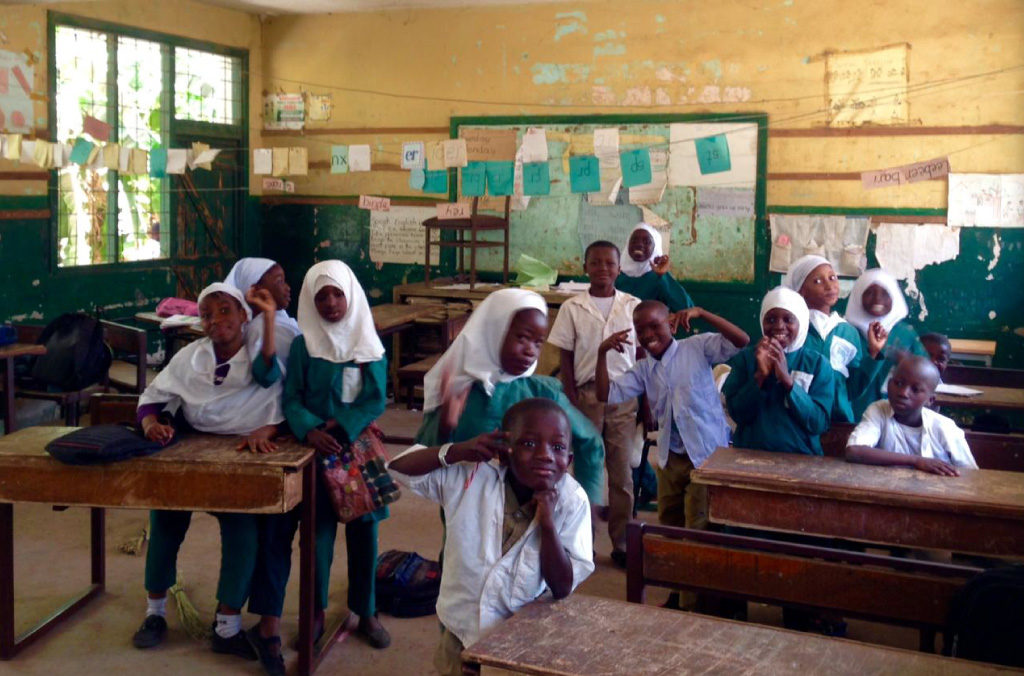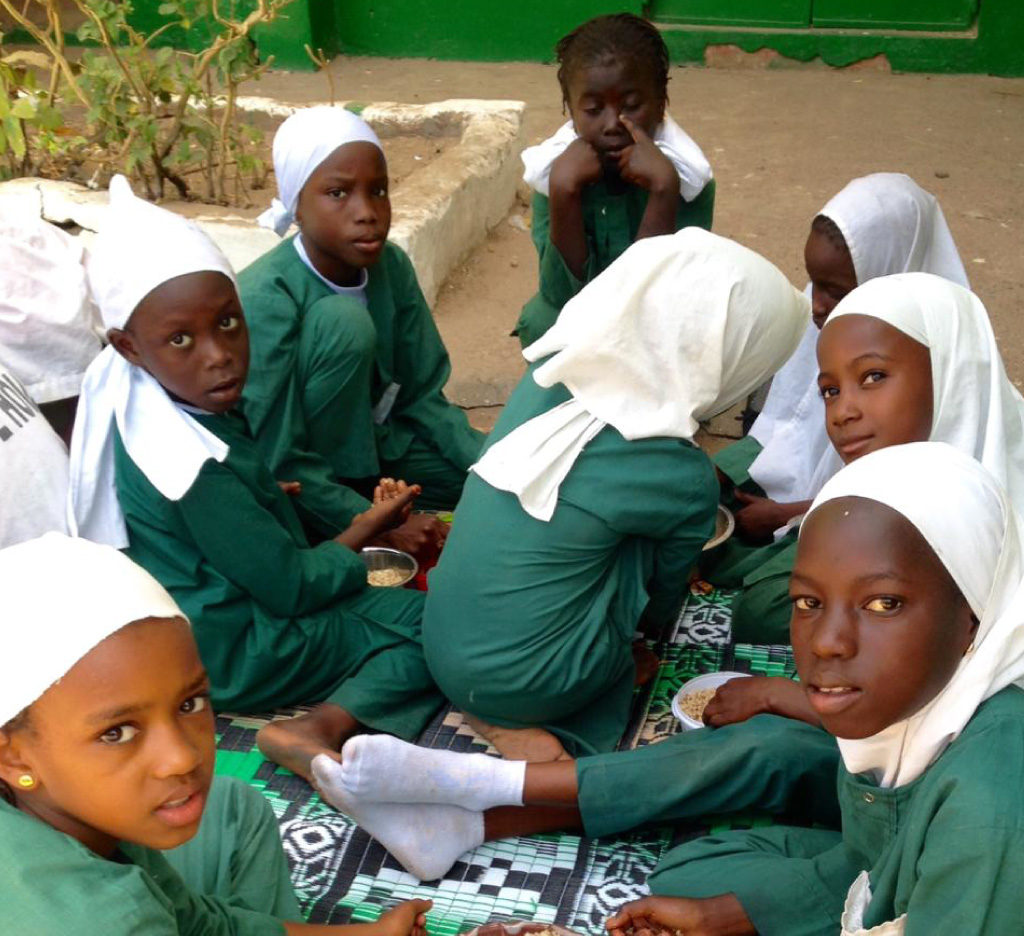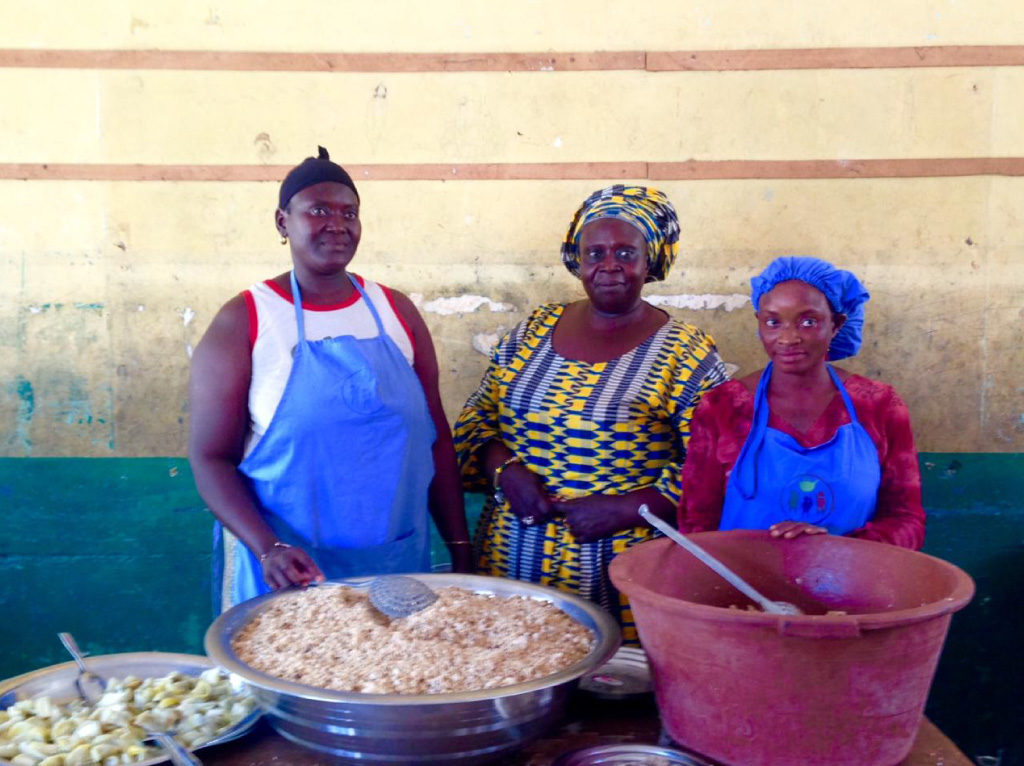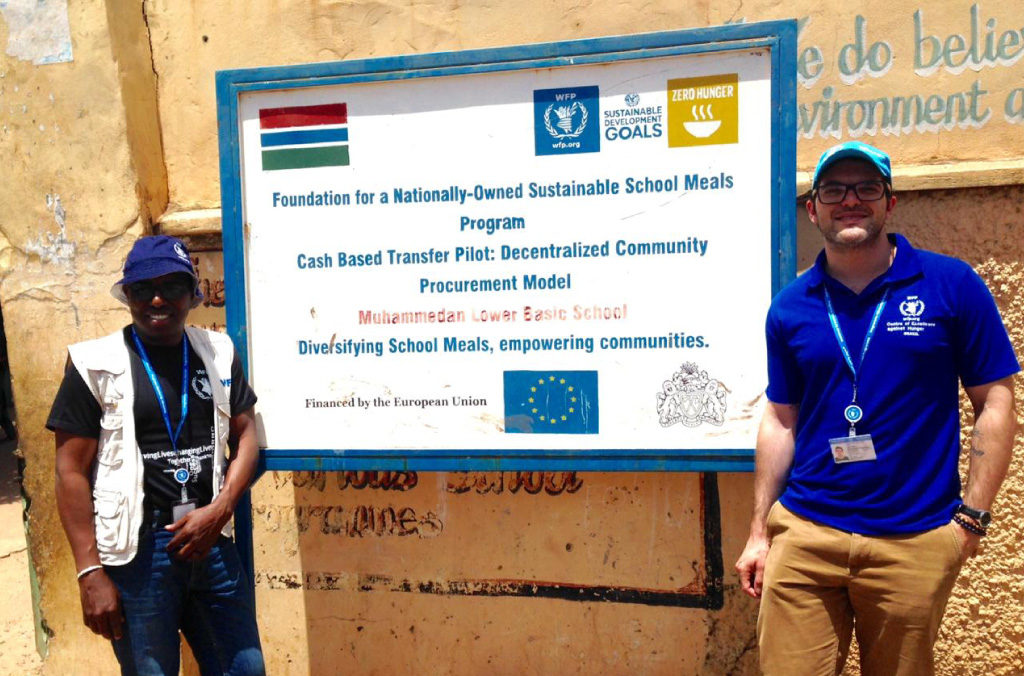
The WFP Centre of Excellence against Hunger conducted a mission to The Gambia from 2 to 12 April and provided technical support to the government, the World Food Programme Country Office and the Regional Bureau Dakar to design an integrated home-grown school feeding programme (HGSF) within a broader social protection agenda. The home-grown approach prioritises support to smallholder farmers through the development of a climate-smart, nutrition-sensitive school feeding programme.

One of the programme’s challenges is to strengthen its component of local food procurement from smallholder farmers. The WFP Centre of Excellence team worked on developing a resource mobilization project to foster institutional markets for smallholder agriculture and its integration with social safety nets such as school feeding and poverty eradication.
The school feeding programme is run by the government in partnership with WFP. The WFP Centre of Excellence experts worked with the national government team and the WFP Country Office team in The Gambia to develop documents that will serve as basis for mobilizing resources to strengthen the home-grown school feeding programme. The WFP Regional Bureau Dakar complemented the support efforts.

One of the objectives of the mission was to support the process of expanding the role of government in the home-grown school feeding programme. The government of The Gambia conducted a study visit to Brazil in 2014 to learn about the Brazilian school feeding experience. Bruno Magalhães and Igor Carneiro, experts of the WFP Centre of Excellence’s Programme Unit, and Abdi Farah, the school feeding focal person for the RBD region, met with the Zero Hunger Lead Convenor, representatives from the WFP Country Office, Ministries of Agriculture, Women’s Affairs and Child Development, and Health. They also met with the National Disaster Management Agency.
They visited one of WFP’s supported schools in Banjul, which is the oldest in The Gambia, where 792 students in the basic cycle, with children aged 7 to 12 years, receive balanced school meals daily. Through cash based transfers, the school procures fresh foods locally, with oversight by the local community, while other food commodities are provided by the WFP. The menu changes daily and, on the day of the visit, it was composed of rice, fish, cooked vegetables, and peanuts.

After the mission, the WFP Centre of Excellence will continue to provide remote support so that the school feeding programme can be improved by including gender, energy saving cooking options, nutrition, access to water and sanitation components, and mitigating climate risks for smallholder farmers.





